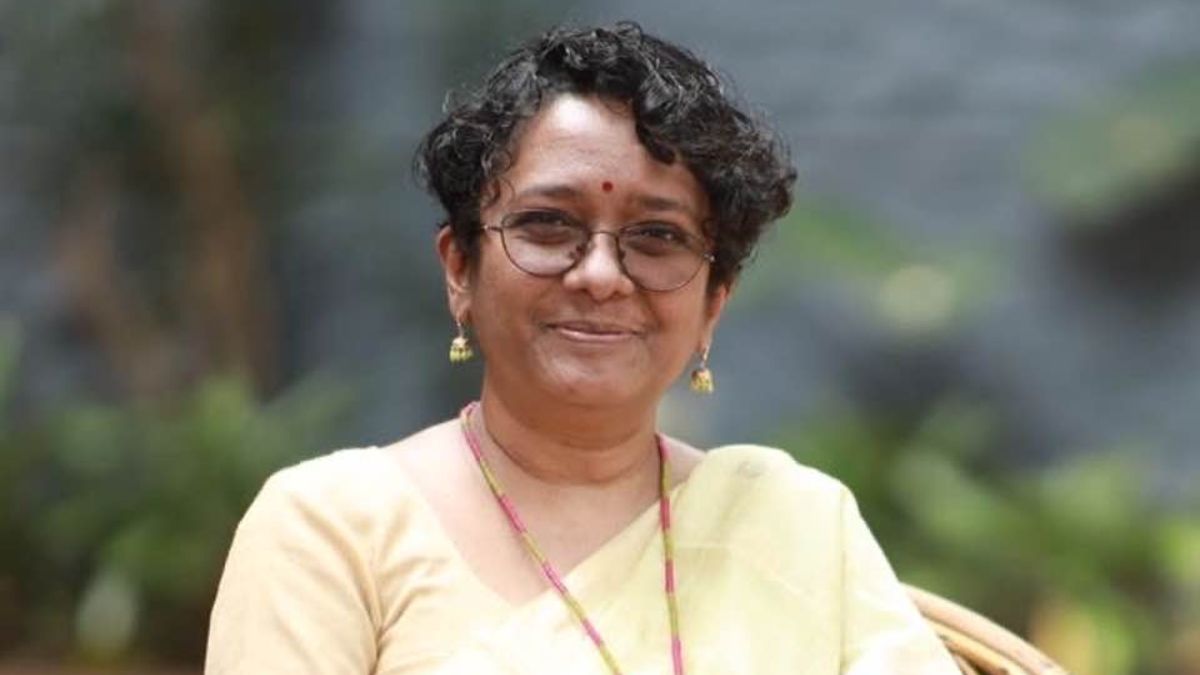Kerala Chief Secretary Sarada Muraleedharan has sparked a crucial discussion on racial and gender discrimination.
In a social media post, she shared her experiences of bias during her career and called for the need to challenge stereotypes associated with dark skin.
Her remarks started a conversation online about racial and gender prejudice and drew support from many people.
ALSO READ | Kerala double murder: How murderer on bail returned to kill his victim's husband, mother-in-law
But who is Sarala Muraleedharan, and what did she say in her post? How did she face discrimination, and what is the entire debate about?
We will break it down for you.
Who is Sarala Muraleedharan?
Muraleedharan is a 1990 batch IAS officer who assumed the role of Kerala Chief Secretary in September 2024, succeeding her husband, Dr V Venu.
She began her career leading the Kudumbashree Mission under the **Kerala** government from 2006 to 2012, according to a report by Hindustan Times. The initiative aimed at empowering women, alleviating poverty, and promoting a human rights approach.
Following this, she worked as the Chief Operating Officer at the National Rural Livelihoods Mission under the Ministry of Rural Development until December 2013.
Between 2014 and 2016, she worked as Joint Secretary in the Ministry of Panchayati Raj, where she was responsible for designing and promoting Gram Panchayat Development Plans (GPDP), which prioritised citizen involvement through Gram Sabha.
Impact Shorts
More ShortsShe has also held key positions, including Trivandrum’s District Collector, and has served in departments such as Scheduled Caste Development, Commissionerate of Rural Development, and Directorate of Collegiate Education.
ALSO READ | 'Forced to lick toilet seat': How relentless ragging in Kerala school drove teen to suicide
Now, let’s jump into the entire debate over her recent post.
The row unpacked: What Muraleedharan said in her social media post
In a deeply personal Facebook post, Muraleedharan spoke about the discrimination faced by women with darker skin in workplaces, households, recruitment processes, and professional evaluations.
She revealed that after taking over as Kerala’s chief secretary from her husband, V Venu, her leadership was compared to his in a way that carried racial undertones, wherein someone said, “it is as black as my husband’s was white.”
Initially overwhelmed by the flood of reactions, she deleted the post. However, she later decided to share it again, believing the issue deserved discussion.
Though she did not disclose the identity of the person who made the remark, Muraleedharan said that the comment had deeply affected her.
Since assuming office, she said, she has faced constant comparisons with her husband and has become conditioned to them. However, this particular comment struck a deeper chord.
“It was about being labelled black (with that quiet subtext of being a woman), as if that were something to be desperately ashamed of,” she wrote.
She questioned the negative associations connected to the colour black, arguing that it symbolises strength and inclusivity.
“Black is as black does. Not just black the colour, but black the ne’er-do-well, black the malaise, the cold despotism, the heart of darkness. But why should black be vilified?”
Muraleedharan also reflected on her personal experiences with colour prejudice. She recalled a childhood memory of asking her mother at the age of four if she could be “born again” with fair skin.
For over five decades, she admitted, she had internalised the belief that fairness equated to beauty, goodness, and worth.
“I have lived buried under that narrative, buying into it, believing that I was lesser for not being fair. That I had to compensate somehow,” she shared.
It was her children, who embraced their dark skin with confidence, who helped her unlearn these notions. “That black is beautiful. That black is gorgeousness. That I dig black.”
She also pointed out the added challenges faced by dark-skinned women. “When a woman voices an opinion, even getting her thoughts across is a challenge. If she also has dark skin, it’s almost as if she becomes invisible,” she stated, discussing how society enforces rigid standards in appearance, speech, and career choices.
Her words resonated widely, sparking conversations on societal biases against dark skin and earning praise for their honesty.
“I need to own my blackness,” she had written in the now-deleted post.
ALSO READ | Younger brother, uncle, girlfriend & more: How Kerala man went from house to house on killing rampage
How her post led to an important debate
Speaking to ANI later, the top officer admitted that the comment which provoked her detailed post may have been intended as a joke.
#WATCH | Thiruvananthapuram: On a comment about her skin complexion, Sarada Muraleedharan, Kerala Chief Secretary, says "...It was a comment that was made perhaps from a sense of humour. But the thing is, behind the humour, there is an entire value connotation and that value… pic.twitter.com/LkL67fr6m0
— ANI (@ANI) March 26, 2025
However, she refused to dismiss it, choosing instead to challenge the deeper biases and value judgments that sustain such prejudices.
Kerala’s Leader of the Opposition, VD Satheesan, “saluted” Muraleedharan for her honesty, saying she had exposed the reality of colourism in Kerala society.
“Salute, dear Sarada Muraleedharan. Every word you have written is deeply moving. This deserves discussion. I had a mother whose skin colour was black,” he wrote in Malayalam on Facebook.
Responding to her post, CPI(M) MP K Radhakrishnan wrote about raising awareness and actively fighting discrimination.
Chintha Jerome, Kerala State Youth Commission chairperson and CPI(M) State Committee member, said that Muraleedharan had pointed out the presence of lingering misogyny, colourism, and regressive attitudes in society that often go unnoticed.
With inputs from agencies


)

)
)
)
)
)
)
)
)



